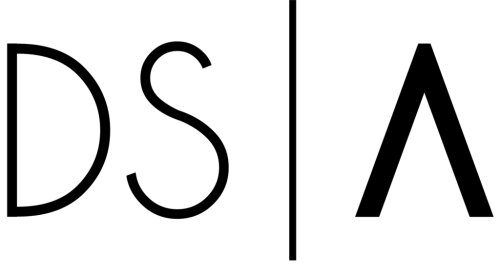Best Toxic Mold Lawyers in Huy
Share your needs with us, get contacted by law firms.
Free. Takes 2 min.
List of the best lawyers in Huy, Belgium
About Toxic Mold Law in Huy, Belgium
Toxic mold is a significant health hazard that can affect homes, workplaces, and public buildings. In Huy, Belgium, cases involving toxic mold typically deal with the presence of hazardous mold growth due to moisture, water infiltration, poor maintenance, or construction defects. Mold exposure can lead to serious health issues such as respiratory problems, allergies, skin irritations, and in severe cases, long-term illnesses. Legal matters concerning toxic mold often arise when tenants, homeowners, landlords, and building managers disagree on liability for mold contamination and suitable remedies.
Why You May Need a Lawyer
Several situations may require you to seek legal help regarding toxic mold in Huy:
- Disputes between tenants and landlords about responsibility for mold removal or repair
- Health complaints linked to mold exposure in rental or workplace environments
- Real estate transactions where mold is discovered before or after purchase
- Problems obtaining compensation from insurance providers for mold-related damage
- Remediation work that fails to address the mold problem adequately
- Negligence or poor maintenance claims against property managers, builders, or previous owners
A qualified legal professional can help you interpret your rights, assess liability, gather evidence, negotiate settlements, or represent you in court if necessary.
Local Laws Overview
In Belgium, both federal and regional laws protect individuals from hazards such as toxic mold. In Huy, which is in the Walloon Region, several legal frameworks may apply:
- Rental Laws: The Walloon Housing Code sets minimum habitation standards, including regulations on humidity, ventilation, and property maintenance. Landlords are typically responsible for ensuring the property is free from harmful mold that arises from structural defects or insufficient maintenance.
- Civil Code: General principles of liability (responsabilité civile) allow tenants, owners, or workers to seek compensation if someone’s negligence causes harm, including health effects caused by mold.
- Health and Safety Regulations: Employers are required to provide a safe working environment, which includes addressing mold infestations that could endanger workers’ health.
- Building and Environmental Regulations: Rules exist regarding construction quality, ventilation, and moisture control to prevent mold growth in new and existing buildings.
Local authorities, such as Huy’s communal administration and regional public health services, may also inspect properties and order remediation when public health is at risk.
Frequently Asked Questions
What are common signs of toxic mold in a property?
Typical signs include persistent musty odors, visible patches of green, black, or white mold on walls or ceilings, water stains, peeling paint or wallpaper, and increased humidity. Health symptoms like coughing, sneezing, skin irritation, or worsening allergies can also signal mold exposure.
Who is responsible for removing toxic mold in a rental property in Huy?
Landlords are generally responsible for repairs and remediation of mold arising from building defects, leaks, or lack of maintenance. However, tenants must also ensure proper ventilation and cleanliness. Liability may depend on the cause of the mold.
Can I break my lease if my rental has toxic mold?
If the presence of mold makes the property uninhabitable and the landlord does not remedy the situation within a reasonable timeframe after notice, you may have grounds to terminate the lease under Belgian rental law. Legal advice is recommended before taking this step.
What evidence should I collect if I plan legal action?
Photographs of affected areas, medical reports, written communication with your landlord or property manager, reports from mold inspectors, and receipts for remediation or repairs can help build a strong case.
Are landlords required to disclose mold issues before renting or selling?
Yes, property owners must disclose any known problems affecting the health and safety of occupants, which includes significant mold infestations.
What are my options if I discover mold after buying a home?
You may have legal recourse if the seller failed to disclose known issues or if the mold is linked to hidden construction defects. Belgian law provides certain protections for buyers against hidden defects.
How long do I have to make a legal claim related to toxic mold?
Timing can vary depending on the nature of the claim. For hidden defects (vices cachés), buyers generally have a relatively short period after discovery to act. Consult a lawyer to understand specific deadlines for your case.
Can tenants with health issues demand immediate removal of mold?
Tenants can formally notify the landlord and request prompt remediation. If the landlord fails to act, tenants may lodge a complaint with housing authorities or initiate legal proceedings.
What role do insurance companies play in mold disputes?
Some insurance policies may cover damages caused by water infiltration or mold, but exclusions often apply. Read your policy terms carefully and consult your insurer and a lawyer for disputes.
What kind of experts can help with my case?
Legal experts, building surveyors, indoor air quality inspectors, and certified mold remediation companies can provide crucial support in identifying, documenting, and addressing mold issues.
Additional Resources
- Walloon Public Health Service: Offers information and may intervene in severe public health situations.
- Huy Communal Housing Service: Assists with rental disputes and inspections.
- Federal Public Service Justice (SPF Justice): Provides details on civil code, liability, and property law.
- Consumer Protection Organizations: Can offer advice and mediation services, especially with landlord-tenant disputes.
- Local Legal Aid Centres: Offer initial legal advice for residents who meet eligibility requirements.
- Professional Mold Remediation Firms: For inspections, reports, and expert testimony.
Next Steps
If you are dealing with toxic mold in Huy, Belgium, begin by documenting all relevant signs, symptoms, and communication related to the problem. Notify your landlord or property manager in writing and keep records of their responses. If the issue is not resolved promptly or if you experience health issues, seek advice from local health authorities or initiate contact with a legal professional familiar with housing and environmental law in Wallonia. Consultation with a lawyer can clarify your rights, outline your options, and help you pursue fair remediation or compensation.
For urgent health or safety risks, do not hesitate to contact public health services or your local commune for intervention. Legal aid is available if you meet certain requirements, ensuring that everyone can access assistance if dealing with toxic mold hazards.
Lawzana helps you find the best lawyers and law firms in Huy through a curated and pre-screened list of qualified legal professionals. Our platform offers rankings and detailed profiles of attorneys and law firms, allowing you to compare based on practice areas, including Toxic Mold, experience, and client feedback.
Each profile includes a description of the firm's areas of practice, client reviews, team members and partners, year of establishment, spoken languages, office locations, contact information, social media presence, and any published articles or resources. Most firms on our platform speak English and are experienced in both local and international legal matters.
Get a quote from top-rated law firms in Huy, Belgium — quickly, securely, and without unnecessary hassle.
Disclaimer:
The information provided on this page is for general informational purposes only and does not constitute legal advice. While we strive to ensure the accuracy and relevance of the content, legal information may change over time, and interpretations of the law can vary. You should always consult with a qualified legal professional for advice specific to your situation.
We disclaim all liability for actions taken or not taken based on the content of this page. If you believe any information is incorrect or outdated, please contact us, and we will review and update it where appropriate.









